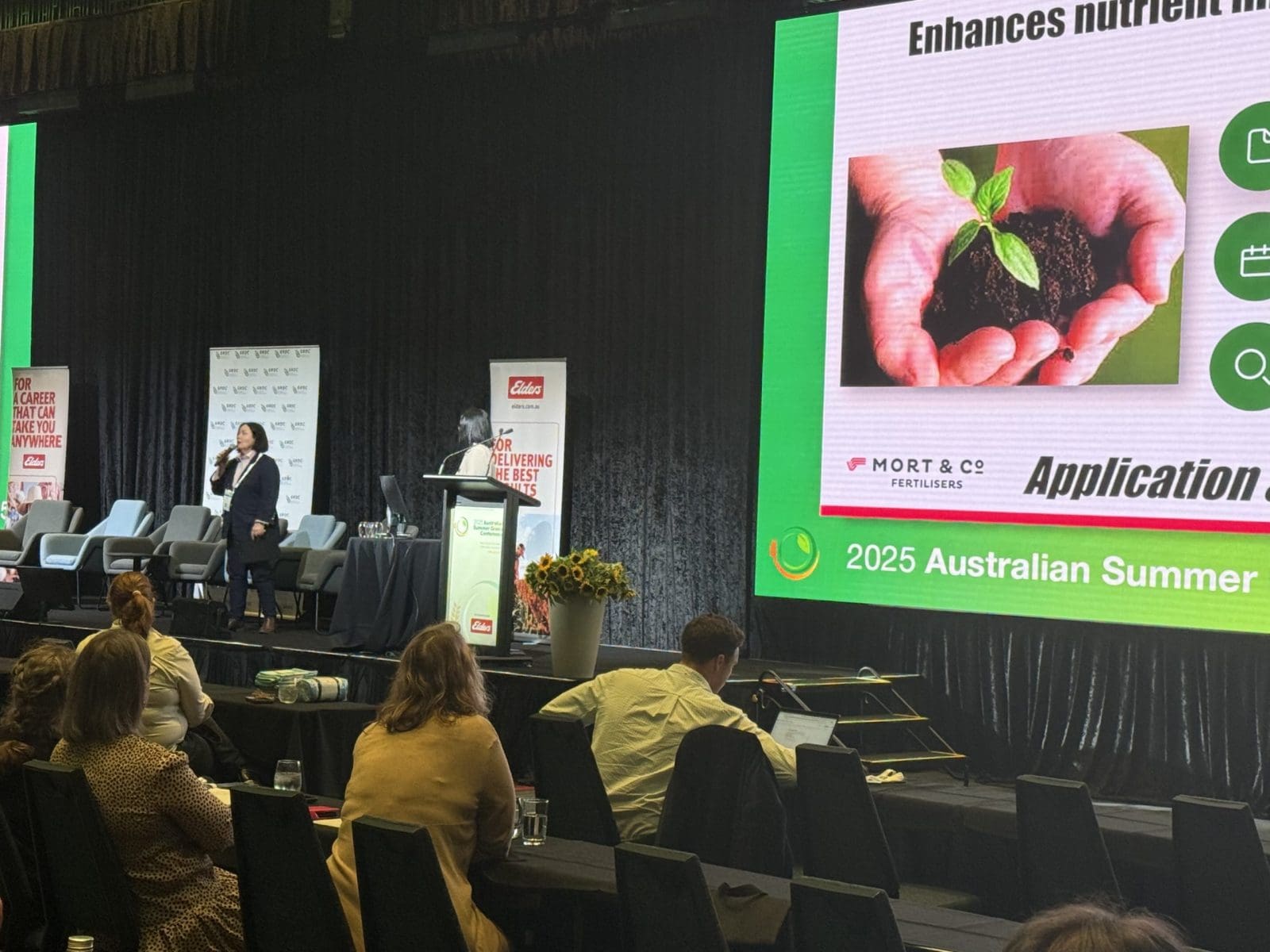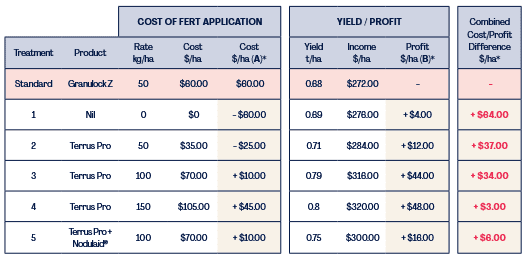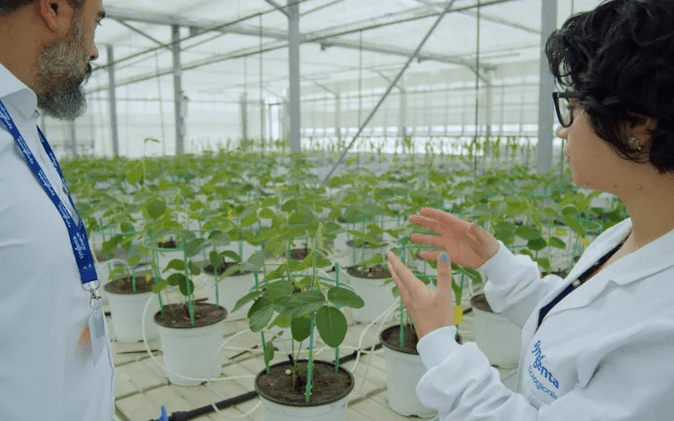
Mort & Co’s senior manager agronomy and innovation and Australian Summer Grains Conference chair Maree Crawford at the launch of Terrus Pro In-X. Photo: Emma Alsop
INVESTMENT in biological stimulants for cropping is on the rise, with Mort & Co today launching its Terrus Pro In-X granule, and Syngenta recently announcing international investments.
Mort & Co Fertilisers has launched In-X at the biennial Australian Summer Grains Conference in what it claims is an Australian first which enables growers to plant the seed with the granule with a guaranteed result.
In the global sphere, Syngenta is investing heavily in biologicals to supplement earnings from its crop protection and seed divisions.
In-X on show at Gold Coast
The Terrus Pro In-X granule increases biological activity in soil and provides seeds with a readily available food source.
It is the latest offering from Mort & Co Fertilisers, a division of Mort & Co, Australia’s largest lotfeeder.
“In Australia, seed treatments and inoculation are common agricultural practices; however, the reliability of inoculants applied to seed can vary,” ASGC chair and Mort & Co senior manager agronomy and innovation Maree Crawford said in a statement.
“The Terrus Pro In-X enhances the precision of microbial loading, offering increased confidence, cost savings, and improved performance for farmers,”
Ms Crawford said In-X features include a porous granule structure which facilitates biological absorption, and microbial longevity is extended due to the nutrient-rich environment within the granule.
The granule can be applied with seed at planting and is compatible with most fungicides and soil treatments, ensuring optimal input efficacy.
“Today’s launch follows three years of replicated trials along with large-scale commercial farming entities now using the inoculated granule,” Mort & Co Fertilisers chief executive officer Charlie Mort said.
“This is an opportunity for us to change the way Australia farms and lead the world in soil remediation.”
Mort & Co Fertilisers has invested a further $10 million into its factory at Grassdale near Dalby, which value adds feedlot manure, to double the manufacturing capacity and add functionality to the inoculation process.
“We continue to invest in quality equipment inside the factory and have also purchased a new German-made windrow turner which will provide better functionality on the manure pad and a higher quality compost base.”
Elders agronomist Neal Stephenson has been trialling Terrus Pro with In-X across both summer and winter-cropping systems as a standalone fertiliser, and in blends with conventional synthetic fertilisers.
“What we’ve found is improved root structure, healthier, more vigorous plant growth and, most importantly, notable increases in yield potential,” Mr Stephenson said.

Table 1: Replicated PBA Warda faba bean trial results at Pallamallawa, NSW, in 2023. Source: Mort & Co Fertilisers
Ms Crawford said investing in the health of soil has become one of the best investments farmers can make.
“Looking after your soil is no longer about environmental stewardship – it is now an investment in your land – and one that you cannot afford to ignore.”
Syngenta aims for global lead
In a statement released June 30, Swiss-based company Syngenta said it aimed to become a global leader in biologicals, and was accelerating the rollout of its range to respond to rising demand.
“With our recent partnerships and acquisitions and extended manufacturing capacities, Syngenta is positioning itself as the leader in biologicals,” Syngenta’s global head biologicals and seedcare Jonathan Brown said.
Syngenta is owned by China’s Sinochem Holdings, and in December 2024, it acquired Intrinsyx Bio, a California-based start-up specialising in the development of nutrient-use efficiency products.
Early this year, Syngenta concluded the integration of Novartis’ Strains and Natural Products Collection, the repository of natural compounds and genetic strains for agricultural use.
Syngenta said these acquisitions are expected to accelerate the development of biologicals as a sustainable complement to conventional crop-protection products.
Also in 2025, Syngenta opened a US biologicals facility in Orangeburg, South Carolina, purpose-built to produce 16,000t of biostimulants annually.
Syngenta’s other sites manufacturing biologicals are located in Brazil, Italy, India, and Norway.

Syngenta is investing heavily in biologicals. Photo: Syngenta
Syngenta has reported strong Q1 2025 results for its biologicals division, and standout performances in North America and China.
According to AgbioInvestor and Syngenta’s estimate, the global biologicals market has a compound annual growth rate of around 10 percent, and is projected to reach nearly US$20 billion by 2030.
Derived predominantly from naturally occurring substances, biologicals are seen as offering significant potential for sustainable agriculture.
Syngenta said the market has three main categories:
Biocontrols: Naturally derived products for managing pests, diseases, and weeds;
Biostimulants: Products enhancing natural plant processes to improve abiotic stress tolerance and crop quality; and,
Nutrient-use efficiency products: Any substance or microorganism to improve macro-and micronutrient availability and uptake to promote growth and enhance yield.
Sources: Mort & Co Fertilisers, Syngenta

HAVE YOUR SAY